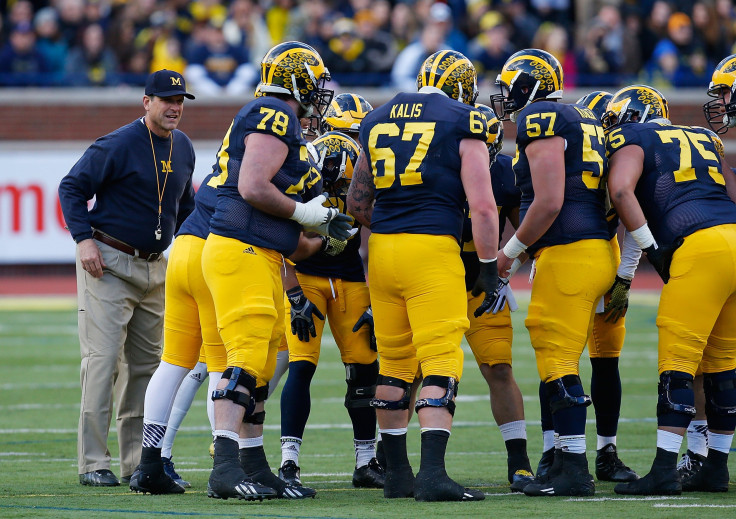NCAA Cancels Fall Championships, But What Are The Odds They’ll Happen In Spring?

Even with the NCAA canceling championships for all fall sports and pushing them to spring, there remains plenty of doubt that seasons postponed because of the coronavirus pandemic will actually be played in 2021.
A few days before the NCAA’s official announcement, both the Big Ten and the Pac-12 postponed their fall sports in hopes of allowing those players to take the field in spring. That includes college football, even as three of the Power Five conferences move forward with plans to play in coming weeks. Several other conferences, including Power 5 members the Big 12, the SEC and the ACC have not canceled their fall sports yet. But the NCAA rulings mean their fall sports championships, except football, will be canceled. The football final four is not controlled by the NCAA.
“The last thing you want to do is gloss over mental-health issues. I worry profoundly about this. Sports is at the center of these young men’s and women’s lives. We want them to continue to be,” NCAA President Mark Emmert said Thursday. “If we think about what’s going on this fall, rather than thinking about it as a canceled or a lost fall, let’s instead think of it as a pivot toward winter and spring."
The odds are against top college football programs such as Ohio State, Michigan and Oregon starting a season in the first half of next year.
The online sportsbook BetOnline has set the odds of any Big Ten games being played during the spring at +350. No spring Big Ten football is an overwhelming -650 favorite.
The Pac-12 is given an even worse chance of playing after the winter. BetOnline sets the odds of any Pac-12 spring games happening at +425. The odds of no spring games are -800.
Placing a $100 bet on the Pac-12 to play spring games at +425 could net a $425 profit. A bettor who put a $100 wager at -800 on no spring games to be played would only make $12.50 if the conference doesn’t have a season.
"Not happening. ... I will be SHOCKED if we have spring football in the Power 5."
— Get Up (@GetUpESPN) August 12, 2020
—@finebaum pic.twitter.com/y0rqlDBj5s
In this plan, you're asking players to play between 18-22 games in a 10-month span... Physical contact in Jan, Feb, Mar, Apr, May, Sep, Oct, Nov, Dec and Jan.
— Greg McElroy (@GregMcElroy) August 13, 2020
If you think that's ok, then so be it... But, don't preach "health and safety" of the student athletes. https://t.co/1xiXx8jVCj
“I think it’s possible, but I think we’ll have to be really smart and we’ll have to certainly alter the way we go about it,” Iowa coach Kirk Ferentz said in a Zoom conference Wednesday. “If this becomes a reality, which is the next thing up on the board, the first challenge is to get our guys ready ... to play in the spring. That’s a huge challenge.”
There are many reasons why a spring football season doesn’t appear to be in the cards.
Players who believe they’ll be playing professional football next year are unlikely to risk getting injured just before the NFL Draft in April. It’s possible, though not probable, that the NFL could adjust its schedule to accommodate spring football.
Spring games would also significantly shorten the length of a usual college football offseason, raising questions regarding potential safety concerns for unpaid student-athletes.
“It’s a complex formula, and we’d have to get our best minds on trying to build a model that’s workable,’’ Washington State athletic director Pat Chun said, via the Mercury News.
“There’s a lot of hurdles: the timing, the health-and-safety piece, the number of games.”
If the situation regarding the coronavirus pandemic hasn’t improved much in a few months, any planning for spring college sports might be rendered moot.
© Copyright IBTimes 2025. All rights reserved.






















